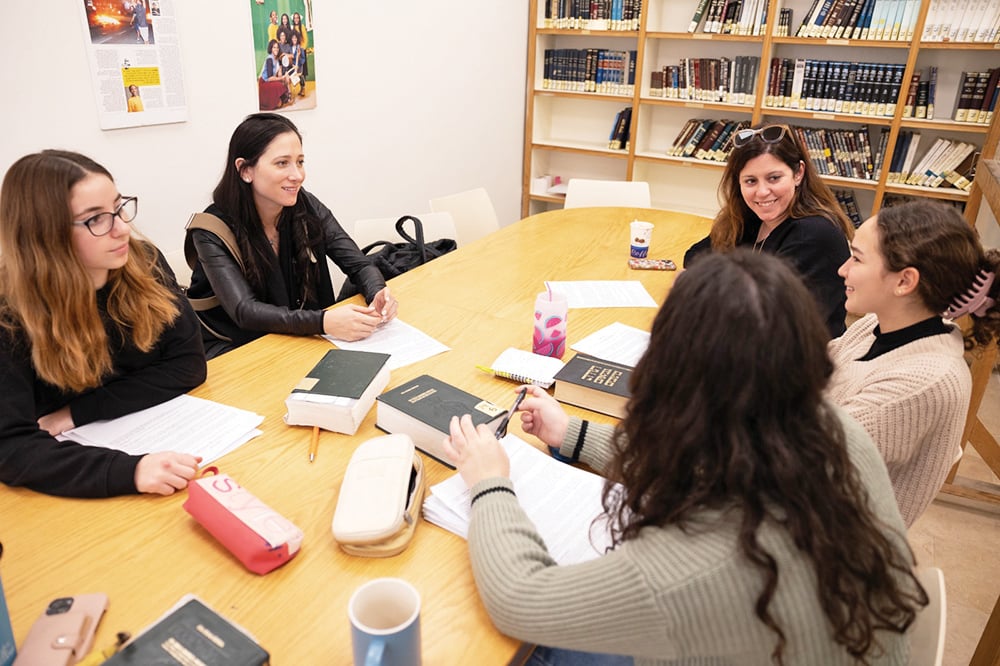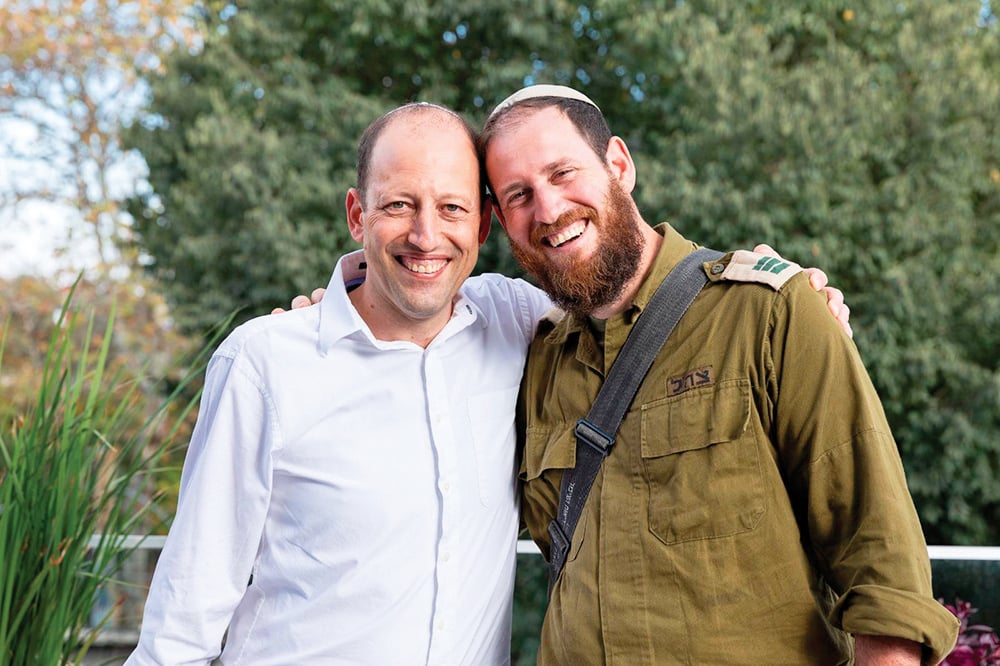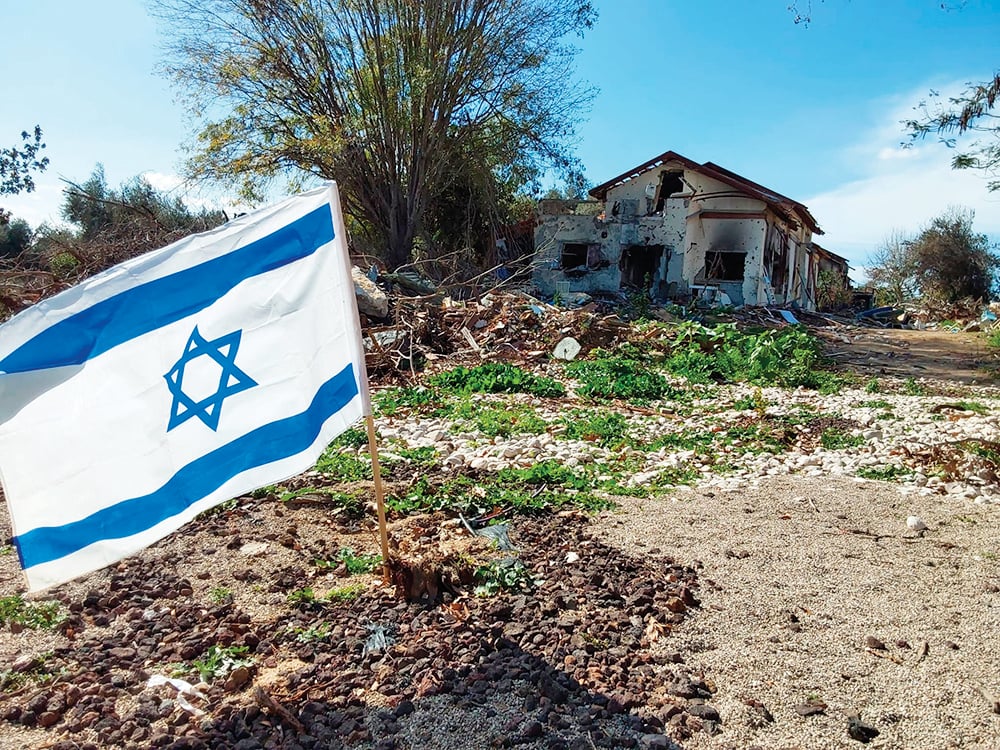
It’s a long drive to Kibbutz Kfar Aza.
It’s a long drive from our routine daily lives to the center of our collective pain. But we take the trip, to connect in person, to share in the pain and hopefully relieve some of it for those who need to tell their stories in order to heal.
On the way down we discuss the political/historical background of the war and the events of Oct. 7 itself. But there is no context that helps us fathom how the horrors of that day occurred.
In Kibbutz Kfar Aza destruction is everywhere—rows of houses completely burnt out, bullet holes and larger signs of RPG missile fire. Our guide lives here. He is 24 years old and describes one of the most idyllic communities anywhere for young people to live. He was in Sderot with his father on Simchat Torah—and he survived, but not without scars. Standing in front of his burnt apartment he speaks of his wounded roommate, who was taken hostage and as of this writing, is still in the hell of Gazan captivity. We let that sink in, and for a moment it is hard to breathe.

We walk next door to where his sister and brother-in-law had lived. They were killed by Hamas on Oct. 7. He loses the ability to continue and said we should just ask questions. He told us he has been fighting in Aza; someone asks “are we winning?” “Yes,” he answered, “but on Oct. 7 we lost.”
There is no apparent reason why some homes were bombed and burned to the ground and others passed over, why some survived and others did not. In the aftermath, we are looking for patterns, explanations, a way to understand. He points out a house and tells of how someone stood in his mamad (saferoom) holding the handle shut for 14 hours. He is overseas recuperating.
Before we leave the kibbutz, we daven Mincha in the kibbutz shul and our guide joins us. The lines between religious and secular have become even more faded. Yes, even this “secular” kibbutz has a beit knesset, a reminder that what binds us together is far stronger than what differentiates us. The final Kaddish hangs in the air as we try to process what we’ve just witnessed.
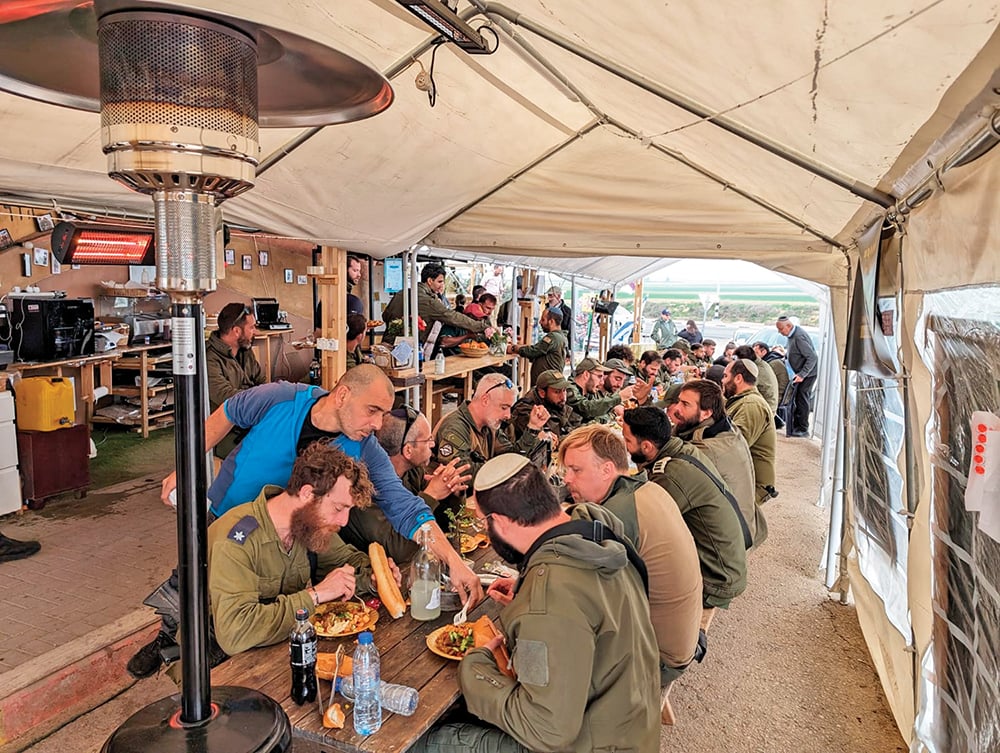
It is a short drive from Kfar Aza to Re’im.
We are already there, in the pain.
This is where the Nova music festival took place. We read a testimony of a survivor who witnessed it all. Slowly, we move about the memorial area where the names and faces of our young victims are arranged. Here, time has stopped and we are still in the immediate aftermath. You see it on the faces of the family members and survivors that are camped next to the memorials for their loved ones. I tell the stories passed on to me from the ZAKA volunteers who collected the bodies while gun battles still raged. A survivor present tells of running and hiding in orchards for 14 hours while being chased by terrorists. One of our group members was called on Oct 8 to volunteer for the chevra kadisha (burial society) preparing bodies for burial — he begins to recognize some of the names.
We move forward, but with awareness that the families of hostages taken from Nova are stuck. They cannot move on. They are frozen in a nightmare that keeps them hostage as well, but we hope that our presence gives them strength.

We visit Shuva Achim, a clubhouse type soup kitchen supplying food, clothes, comfort and camaraderie to the soldiers on short leave from their service in Gaza. Created by three local brothers, this refuge initiated as a spontaneous response to the needs of the soldiers, victims and rescue workers on Oct. 7. Here they set up a welcoming space where everyone can relax and feel at home. The meals are free; there is coffee and snacks for everyone, and one of the warmest feelings of Jewish brotherhood anywhere.
Aaron Razel shows up and turns off the radio, plugs in his guitar and begins to play. There is a ping pong table, a view of the surrounding fields, and a supply store for the soldiers where everything is free. Volunteers keep the place clean and functioning. Dror, one of the brothers, tells us how soldiers come out of Gaza and after spending time here are better able to transition back to civilian life. My group seems to need the transition as well.
On to Sderot, where we drive past many school playgrounds, each full of children playing soccer and enjoying the hafsaka (recess). Each is also equipped with a bomb shelter. This is their reality. Many have returned home from the evacuation, back to “normal” life.
We stop at the Sderot police station and hear how the terrorists made it into the city and took over the building. The battle went on for hours and the army decided it was best to blow up the station with the terrorists inside. But it was built to withstand rocket fire and the tank that arrived wasn’t able to bring it down. Finally, an airstrike leveled it, killing all of the terrorists inside.
Across the street, we can see the third floor bathroom window the IDF sniper used during the battle, and we hear the tragic story of the Swissa family, their two surviving girls, ages 3 and 6, who witnessed the murder of both their father and mother, and the brave young Arab-Israeli who died trying to help them.
We end the day on an army base, where my clients sponsor a BBQ for over 100 soldiers. There is no sadness or depression here. Motivation is high and they are extremely appreciative of the break in combat to have a hot meal and warm company. We sing, dance, eat and all hug before the night is over. We tell them how proud we are of them. They are our sons. Their inner strength, determinism and optimism restore our faith.
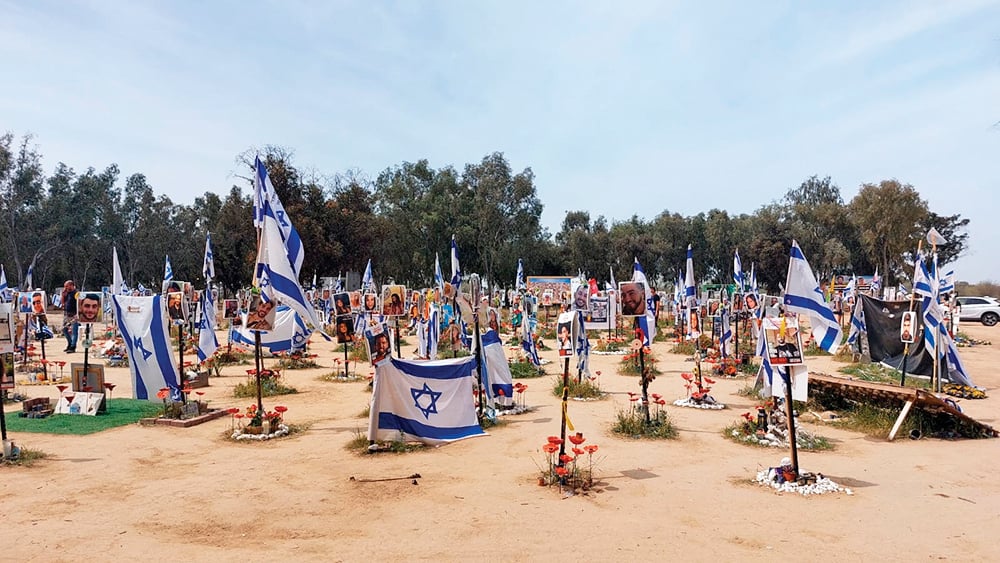
It is also a long drive back.
It is a long way back to our routine lives, where we must either compartmentalize the pain or navigate carrying it while moving forward. Many fall asleep on the ride back to our families and our warm beds. The heroes we met today, those that lifted us up—they are the reason we can sleep at night, and we thank them.
Our goal now is to live our lives in a way that honors those that have fallen, remembers those that have yet to be rescued, heals those that are injured, and gives us strength, as we see clearly that the ongoing battle belongs to all of us.
Aryeh Kaplan, licensed tour guide, brings his experience as an educator, rabbi and geopolitical specialist on all of his tours. He is the owner of Israel First Hand Tours (a boutique Israeli travel company), and the co-founder of Israel Unabashed, a joint venture with Sarah Bergman of Israel Itinerar-ies, that promotes an understanding of who Israel is, historically, spiritually and politically — with no apologies. Contact [email protected]; WhatsApp: +972 58 – 623-4362. Contact Aryeh or Sarah to arrange a group or private tour anywhere in Israel.




